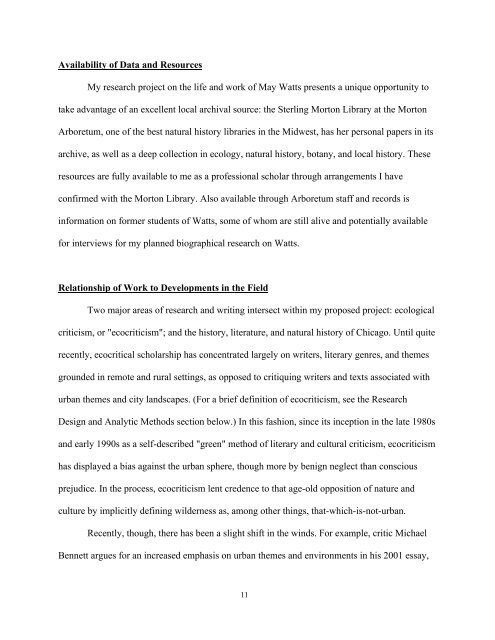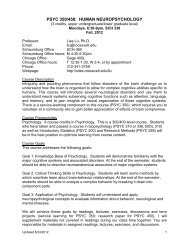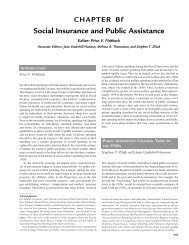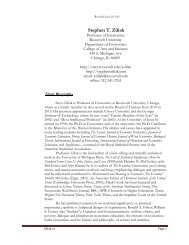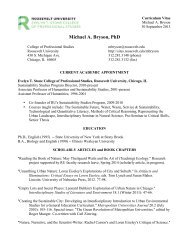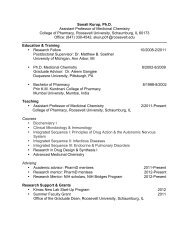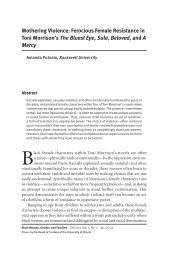Reading the Book of Nature
Reading the Book of Nature - Roosevelt University Sites
Reading the Book of Nature - Roosevelt University Sites
Create successful ePaper yourself
Turn your PDF publications into a flip-book with our unique Google optimized e-Paper software.
Availability <strong>of</strong> Data and Resources<br />
My research project on <strong>the</strong> life and work <strong>of</strong> May Watts presents a unique opportunity to<br />
take advantage <strong>of</strong> an excellent local archival source: <strong>the</strong> Sterling Morton Library at <strong>the</strong> Morton<br />
Arboretum, one <strong>of</strong> <strong>the</strong> best natural history libraries in <strong>the</strong> Midwest, has her personal papers in its<br />
archive, as well as a deep collection in ecology, natural history, botany, and local history. These<br />
resources are fully available to me as a pr<strong>of</strong>essional scholar through arrangements I have<br />
confirmed with <strong>the</strong> Morton Library. Also available through Arboretum staff and records is<br />
information on former students <strong>of</strong> Watts, some <strong>of</strong> whom are still alive and potentially available<br />
for interviews for my planned biographical research on Watts.<br />
Relationship <strong>of</strong> Work to Developments in <strong>the</strong> Field<br />
Two major areas <strong>of</strong> research and writing intersect within my proposed project: ecological<br />
criticism, or "ecocriticism"; and <strong>the</strong> history, literature, and natural history <strong>of</strong> Chicago. Until quite<br />
recently, ecocritical scholarship has concentrated largely on writers, literary genres, and <strong>the</strong>mes<br />
grounded in remote and rural settings, as opposed to critiquing writers and texts associated with<br />
urban <strong>the</strong>mes and city landscapes. (For a brief definition <strong>of</strong> ecocriticism, see <strong>the</strong> Research<br />
Design and Analytic Methods section below.) In this fashion, since its inception in <strong>the</strong> late 1980s<br />
and early 1990s as a self-described "green" method <strong>of</strong> literary and cultural criticism, ecocriticism<br />
has displayed a bias against <strong>the</strong> urban sphere, though more by benign neglect than conscious<br />
prejudice. In <strong>the</strong> process, ecocriticism lent credence to that age-old opposition <strong>of</strong> nature and<br />
culture by implicitly defining wilderness as, among o<strong>the</strong>r things, that-which-is-not-urban.<br />
Recently, though, <strong>the</strong>re has been a slight shift in <strong>the</strong> winds. For example, critic Michael<br />
Bennett argues for an increased emphasis on urban <strong>the</strong>mes and environments in his 2001 essay,<br />
11


